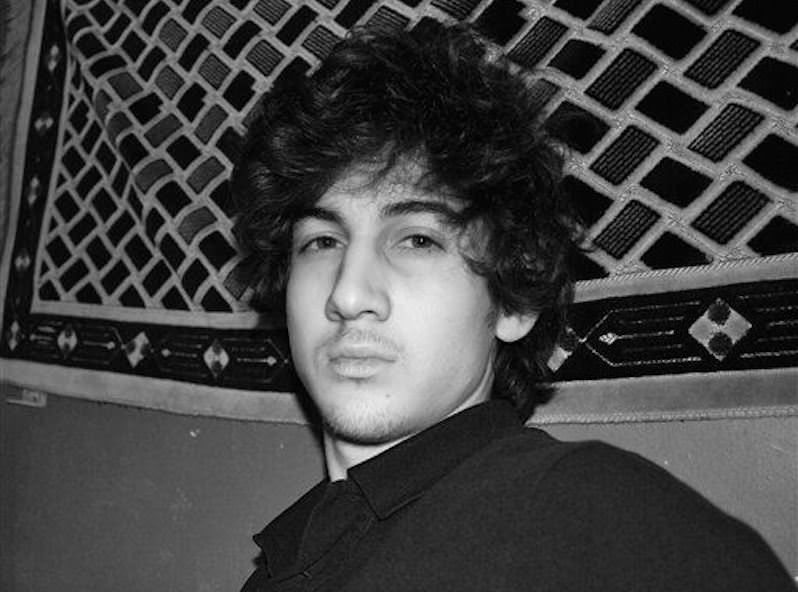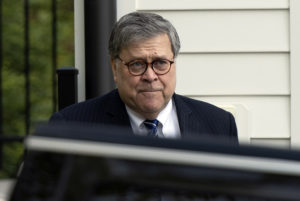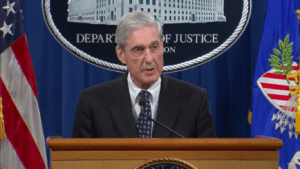Why Dzhokhar Tsarnaev’s Trial Is About Our Humanity, Not His Guilt
Ultimately the fate of Dzhokhar Tsarnaev, and the process by which it is decided, will reflect the fairness of the U.S. justice system, the humanity of American society and our role in the world. Wikimedia Commons/Voice of America
Wikimedia Commons/Voice of America
As the remaining man at the center of the Boston Marathon bombing goes to trial, questions abound — not about his guilt or innocence, but about whether he gets to live or die. Ultimately his fate, and the process by which it is decided, will reflect the fairness of the U.S. justice system, the humanity of American society and our role in the world.
Twenty-one-year-old Dzhokhar Tsarnaev, a naturalized U.S. citizen of Chechen descent, faces a federal trial in Massachusetts as a result of the April 15, 2013, attacks on the Boston Marathon that left three people dead and 264 injured. He faces 30 counts in a federal indictment that the Justice Department has brought against him. Among the charges is the intent to use a weapon of mass destruction. But there are many aspects of this case that ought to greatly disturb us, chief among them the sense that Tsarnaev is being considered guilty before being proved guilty.
A federal appeals court ruled 2 to 1 against Tsarnaev in his attempt to move the trial out of Massachusetts, where emotions naturally run high over a case that hits close to home. In an interview on “Uprising,” I asked Marjorie Cohn, a professor of human rights law at the Thomas Jefferson School of Law, what impact the decision to try Tsarnaev in Massachusetts could have on the trial. She told me, “In the Oklahoma City bombing case, Judge [Richard] Matsch ruled that nowhere in [Oklahoma] could Timothy McVeigh and Terry Nichols get a fair trial, and moved it to Denver.” Cohn cited that the federal government has said that in the case of the Boston Marathon bombing, “everyone in Boston is a victim,” casting serious doubts on the objectivity of jurors.
The federal appeals court judge who issued a dissenting opinion over the vote to keep the trial in Massachusetts complained that there was not enough time to properly consider Tsarnaev’s request to move the trial, and wrote that “such a rushed and frenetic process is the antithesis of due process.” Cohn added, “If there was ever a case for a change of venue, this is the one.”
Even the Nazis apparently had fairer trials than Tsarnaev seems to be facing, according to Cohn, who said, “There were no worse crimes in the world committed than those by the Nazis, [but] they were given due process.” She paraphrased Justice Robert Jackson, who took time out from being a Supreme Court judge to play the role of chief U.S. prosecutor at the Nuremberg trials: “If we do not provide due process even to these Nazi leaders, we will pass a poisoned chalice to future generations.”
Many media reports such as this one have already claimed that “few doubt the outcome of the first phase of the two-phase trial,” that is, that Tsarnaev will be found guilty. The only question that truly remains is whether he will be sentenced to death or life imprisonment without parole once he is found guilty. Attorney General Eric Holder, who says he is against the death penalty, has carved out an exception to his morals in this case. He is seeking the ultimate punishment, emphasizing Tsarnaev’s “especially heinous, cruel and depraved manner.” In fact, in the jury selection for the case, potential jurors have to be “death qualified.” In other words, they cannot serve on the jury if they have any moral opposition to the death penalty.
Interestingly, even though Boston-area residents may be too biased to serve on Tsarnaev’s jury, a majority are opposed to applying the death penalty if he is convicted. Support for capital punishment is unusually low in Massachusetts, where no one has been executed in 60 years.
Cohn remarked, “We are the only so-called civilized country in the world to maintain the death penalty. Even the international tribunals that try war crimes, genocide, crimes against humanity, don’t have the death penalty.”
In another marker of our inhumanity, it is very likely that we have already tortured Tsarnaev. For more than a year after the bombings, he has been kept in solitary confinement with no access to TV, radio or the Internet. He has been allowed only one letter and one phone call a week.
Courtroom artist Art Lien said of his sketches of Tsarnaev during this latest phase of the trial, “People said I made him look too old. He is young, but he has a very strange look, his eyes. Almost seems like he just woke up, or he’s high.”
It is very likely that Tsarnaev has been traumatized and even “permanently damaged” by the long periods of isolation, as this investigation into the effects of solitary confinement suggest. Our ugly habit of treating prisoners is described as “a mix of medieval cruelty and sci-fi dystopia.” Cohn, who edited the book “The United States and Torture,” said solitary confinement can result in, “hallucinations, catatonia and even lead to suicide.”
Indeed, if we have not directly tortured the suspect, some politicians wish we would. New York state Sen. Greg Ball in 2013 tweeted in reference to Tsarnaev, “Who wouldn’t use torture on this punk to save more lives?”
The torture of suspects and prisoners says much more about our deep societal sickness than it does about whether or not the person in question deserves safety and protection.
Sadly, it is unlikely that Tsarnaev’s trial will actually elucidate the real reasons why he and his brother allegedly planted bombs with the intent to kill people. Heather Abbott, a victim of the bombing, told the media, “The question that I have and probably a lot of people have is … why? I don’t know that I’ll ever get an answer to that question.” Abbott lost one of her legs and is among hundreds of people who suffered injuries. She and others deserve an answer to that basic question, similar to the one many Americans were asking after the Sept. 11, 2001, attacks.
It is a testament to the sad state of the mainstream media that Americans are so unaware of the devastating effects of U.S. policy in the Muslim world that such desperate and violent acts seem inexplicable. Although they are inexcusable, there is certainly an explanation, and Tsarnaev offered it himself when he scrawled on the side of a boat where he was hiding, “The U.S. Government is killing our innocent civilians … I can’t stand to see such evil go unpunished. We Muslims are one body, you hurt one you hurt us all.”
Cohn invoked another case in which a similar sentiment was expressed: “When Faisal Shahzad was pleading guilty to try to detonate a bomb in Times Square, he told the judge, ‘When the drones hit, they don’t see children.’ ” Cohn surmised that “what we’re seeing perhaps is a pattern of blowback where we are more vulnerable to terrorist attacks … because of what we do to people in other countries.”
It is noteworthy that investigators have so far found absolutely no coordination between the Tsarnaev brothers and any radical fundamentalist organization outside the U.S. They are thought to have acted on their own accord. In fact, according to police opinion in The Wall Street Journal, “Dzhokhar’s actions better fit the psychological profile of an ordinary criminal than a committed terrorist.”
Ultimately, how we treat Tsarnaev will say much more about our humanity than his guilt. Sentencing him to death will solve nothing. If anything, it will fulfill his wish to be martyred, as he expressed before his arrest, and it will simply confirm his and others’ opinion of U.S. barbarity.
Although the broader issue of U.S. foreign policy fueling his actions remains perhaps outside the scope of the trial, it is a question that must be answered. The mass anger stemming from our destructive wars is legitimate, even though acting on that anger through violence is clearly not. We must address it if we have any hope for long-term peace and justice for all of us.
Your support matters…Independent journalism is under threat and overshadowed by heavily funded mainstream media.
You can help level the playing field. Become a member.
Your tax-deductible contribution keeps us digging beneath the headlines to give you thought-provoking, investigative reporting and analysis that unearths what's really happening- without compromise.
Give today to support our courageous, independent journalists.





You need to be a supporter to comment.
There are currently no responses to this article.
Be the first to respond.